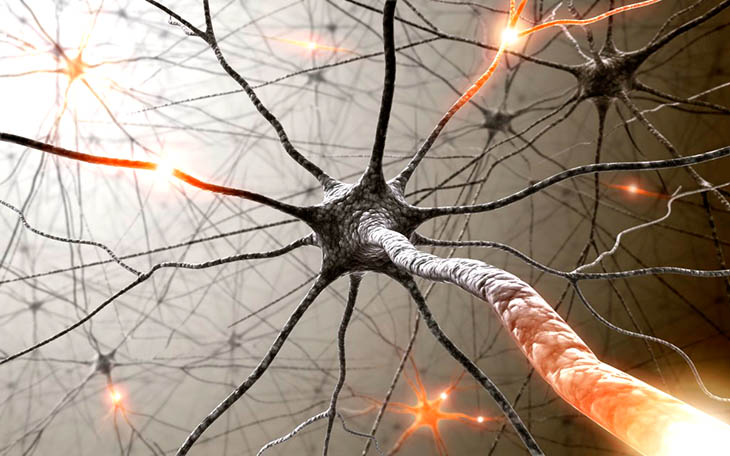Gabapentin For Better Sleep
Gabapentin, also known as Neurontin has been on the market since 1993. Initially, this drug was solely administered to epileptic patients as a treatment for seizures. Today, this drug is often used as an off-label drug to treat a number of medical ailments among them bipolar disorders, hot flashes, anxiety, migraines, restless leg syndrome, and chronic pains.
Does Gabapentin Help Curb Sleep Disorders And Insomnia?
FDA, an institution responsible for drugs approval and regulation has a set of Z-drugs that are recommended for insomnia patients. Many people find drugs under this category ineffective or hard to tolerate. So, is gabapentin an ideal alternative?
Although this drug is rarely prescribed for patients suffering from sleep disorders, some users who reviewed it assert that this drug is an effective sleep aid. They claim that the drug suppresses insomnia and may lead to longer hours of sound sleep. Some studies have also shown that gabapentin decreases the chances of unwanted loss of sleep all through the night.
Going by all the preliminary evidence from reviewers of gabapentin, this drug might help patients who have difficulty sleeping. This, however, still needs further researches to be declared as true.
Before then, I will tell you all that you need to know about gabapentin, whether you are using it for insomnia or not. Read on to know how this drug works (to help users to sleep), the advantages, and points to consider before taking this drug, and the risks associated with its use.

How Gabapentin May Help Enhance Sleep
Gabapentin can help one gain sleep in many ways. Take for instance, if one’s lack of sleep was caused by intense pain or anxiety, administering this drug may suppress the pain and anxiety, therefore, allowing the patient to sleep. Below are ways through which gabapentin users can get better sleep.
- By calming down strong headaches or migraines – Some people have severe headaches causing them to have a hard time finding sleep. Although this drug is not legally accepted as a migraine and headache remedy, taking it may reduce this pain enabling such users to sleep.
- By reducing pain – People with painful ailments such as neuropathic pain have a hard time sleeping due to the pain caused by this condition. Neuropathic patients have fibers which are either dysfunctional and or damaged. As a result, they experience severe pains. This drug, which is approved for treatment of this condition reduces the pain making it manageable, allowing these patients to catch some sleep.
- By treating withdrawal symptoms – Some individuals suffer insomnia after withdrawing from psychoactive drugs. They have imbalanced withdrawal after effects such as hormonal imbalance and feelings of fatigue which may interfere with their sleep cycle. Noting that gabapentin attenuates many withdrawal symptoms, its use can allow for enhanced sleep.

Advantages of Using Gabapentin for Sleep
- It is more tolerable than most drugs approved for treating sleeplessness
- If lack of sleep is caused by other conditions such as anxiety or bipolar disorders, gabapentin helps solve both problems at a go. Treating the condition, and calming you to get a good night’s sleep.
- This drug can be administered as a sleep-aid when the need arises, that is, only at night when one feels that he/she can’t find sleep easily.
- There is a lot of preliminary evidence from users who reviewed this drug agreeing that it does help one sleep. All these users cannot be wrong.
- With many pharmacies and drug stores retailing Gabapentin (300mg) at $15-$30, this drug is relatively affordable for many people. Other drugs claiming to be a remedy for insomnia require users to part with over $200. That’s definitely a price too high for the average income earner.
Disadvantages of Using Gabapentin for Sleep
- Using gabapentin may cause undesired side effects to different people. Commonly reported side effects include; drowsiness, fatigue, and weight gain.
- Withdrawal effects, as much as this drug helps fight withdrawal effects from other drugs, persons wishing to discontinue its use have reported negative after-effects which include feelings of depression, nausea, nightmares and general body aches.
- The efficiency of Gabapentin as a remedy for sleep remains unclear.
- That using this drug to treat sleep disorders remains an off-label prescription limits its dependability. Some doctors may recommend its use, others may disapprove.
- If used for a long time, some studies suggest that gabapentin may cause undesired effects such as memory loss.
Bottom-Line
As seen above, gabapentin may help enhance one’s sleep. It is, however, advisable to seek your doctor’s opinion before taking gabapentin for sleep or for any other medical condition.

